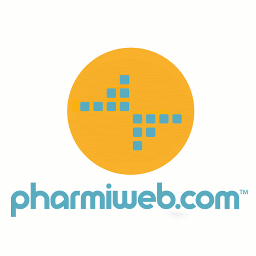blog:
March Madness: The secrets behind winning digital marketing strategies

March Madness is one of the most awaited sports events in the US, where 68 basketball teams battle it out to determine the champion. With the competition well underway, it got the experts at ramarketing thinking about what makes a winning team and indeed a winning digital marketing strategy.
We sat down with Laura Wootton and Emma Wallace from our digital marketing team to chat about how they support companies to get noticed in life sciences with winning digital campaigns.
Meet our experts…
As our Digital Marketing Manager, Emma offers support across multiple accounts, specializing in PPC, LinkedIn advertising (organic and paid) and SEO. She Works with our clients and ramarketing’s in-house delivery team to create cohesive digital strategies for each account.
Laura, Digital Marketing Manager, brings technical expertise, creative flare and biotech industry knowledge to every project. Collaborating with content, social and PR teams, Laura helps to deliver integrated digital strategies, campaigns and reports that deliver tangible results.
Our conversation reveals the secrets behind planning and implementing winning campaigns…
What is a non-negotiable when it comes to digital advertising and campaigns, and why? Who is the digital marketing star player?
“Doing a gap analysis when embarking on any digital project is crucial; looking at elements such as your organic and paid performance against competitors offers intel on how to achieve valuable visibility on Google, and improve campaign targeting. For example, if your competitors rank well organically on Google for certain keyword searches, PPC ad campaigns can provide immediate visibility for those searches whilst you craft an organic SEO strategy to compete in the long-term. So yes, gap analysis is definitely my star player – find the competitive gap and capitalize on it .” – Laura
“I would say organic social here. It’s a free activity that promotes your message to an audience that follows you and is therefore already engaged in what you’re offering. Organic social is best used to raise brand awareness and harness a community of engaged followers. At ramarketing, we provide organic social services from strategy through to posting. Our in-house experts know how to drive website traffic and keep your audience engaged, using social media to uplift your existing content and gain valuable insights for future content and paid LinkedIn strategies. Our knowledge of the life science sector means we can create technical social plans tailored to your services, while also taking into account wider social media trends to increase engagement.
Organic social has a wider impact than you may think; if you are not active organically on your social media, it has a knock-on effect on your brand’s sentiment, as well as other digital metrics such as website traffic. When reporting on client activity, we often see a correlation between low organic activity and dips in traffic to the company’s website. Ensuring you have a consistent and united presence on your social media accounts can generate surprising results for little to no cost – that’s why it’s a star player for me.” – Emma
Give an example of when a campaign wasn’t performing as expected, and how you used your expertise to turn it around.
“I think as a team, we excel at boosting campaign performance because it involves a lot of learning, testing, and optimizing. Of course, we utilize industry insights, previous learnings, and client data but there are always ways we can make a campaign perform even better, based on time-sensitive insights that are occurring in the industry as the campaign progresses.
A particular example of this is paid LinkedIn advertising; with the multitude of ad types available, it can be difficult to determine which will perform best for the client’s campaign. We had an instance when a LinkedIn ad wasn’t performing well – it had lots of impressions but minimal click-through and engagement. We then proceeded to do some A/B testing with another type of ad which ended up outperforming the original ad in terms of the client’s goals, so we shifted the budget across to the new ad and had a much more successful campaign.” – Emma
“Because our industry is highly regulated, we experience quite a few clients getting hit with disapprovals when trying to promote their services through Google’s ad platforms. For example, a client that specializes in gene therapy will find that Google doesn’t allow paid promotion of that due to their experimental and speculative medicines program policy. Google automatically groups our ads with all gene therapy drug adverts despite our ads promoting services rather than actual drugs. This issue led us to undertake a lot of research and testing with different ad copy in order to find a solution that allowed the ads to run. With our sector experience, we’re able to learn quickly and make changes in line with Google’s policies. We also have the ability to talk to Google reps who work with us to get ad approval, which has been of huge benefit to us as a team.” – Laura
“To add to Laura’s point, we are also able to use semantic variations. As we’re carrying out the keyword research, we can look into semantic variations for a certain service area, so we’re able to advertise around Google’s policies while speaking language that is understood by our target audience but does not breach Google’s policies. That can be a handy tool for our clients to still be able to utilize Google’s fantastic advertising platform” – Emma
Share a key campaign strategy that works well for the life sciences sector. What are your winning plays?
“We know that events play a huge part in our industry, so a winning advertising strategy for the life sciences industry is digital event campaigns. If a client is attending an event, we can work with partner publications to place awareness ads in the lead-up. During the event, our strategic ads enable clients to boost awareness of their event attendance, which then activates the consideration phase where clients are encouraged to book meetings and attend stands. We also find that post-event campaigns can be very successful; clients often have content they have presented at the event that we can share with a much wider audience digitally.” – Emma
“My top suggestion is promoting hero content through paid ads; this could be things like an eBook, whitepaper, or thought leadership article. Using LinkedIn ads allows specific targeting based on buyer personas, industries, and more. LinkedIn has also been developing new ad types such as document ads, which means we can easily encourage content downloads from relevant, in-market audiences. We have also found that Google Display retargeting campaigns works very well when promoting content and increasing downloads. ” – Laura
As March Madness concludes there’ll be many winners and losers and only one team crowned the champions – but when it comes to digital marketing there are several star players. Our experts agree that digital marketing is a team sport. The best campaigns have a clear strategy, monitor performance, change up tactics, use learnings to develop and make substitutes along the way. So, if you’re looking for high-performing digital marketing that outshines the competition, delivers results and demonstrates ROI look no further than the ramarketing A team!
Find out more about our digital marketing solutions or get in touch with our team to discuss your digital marketing challenges and how we can help.
Related news, insight and opinion




